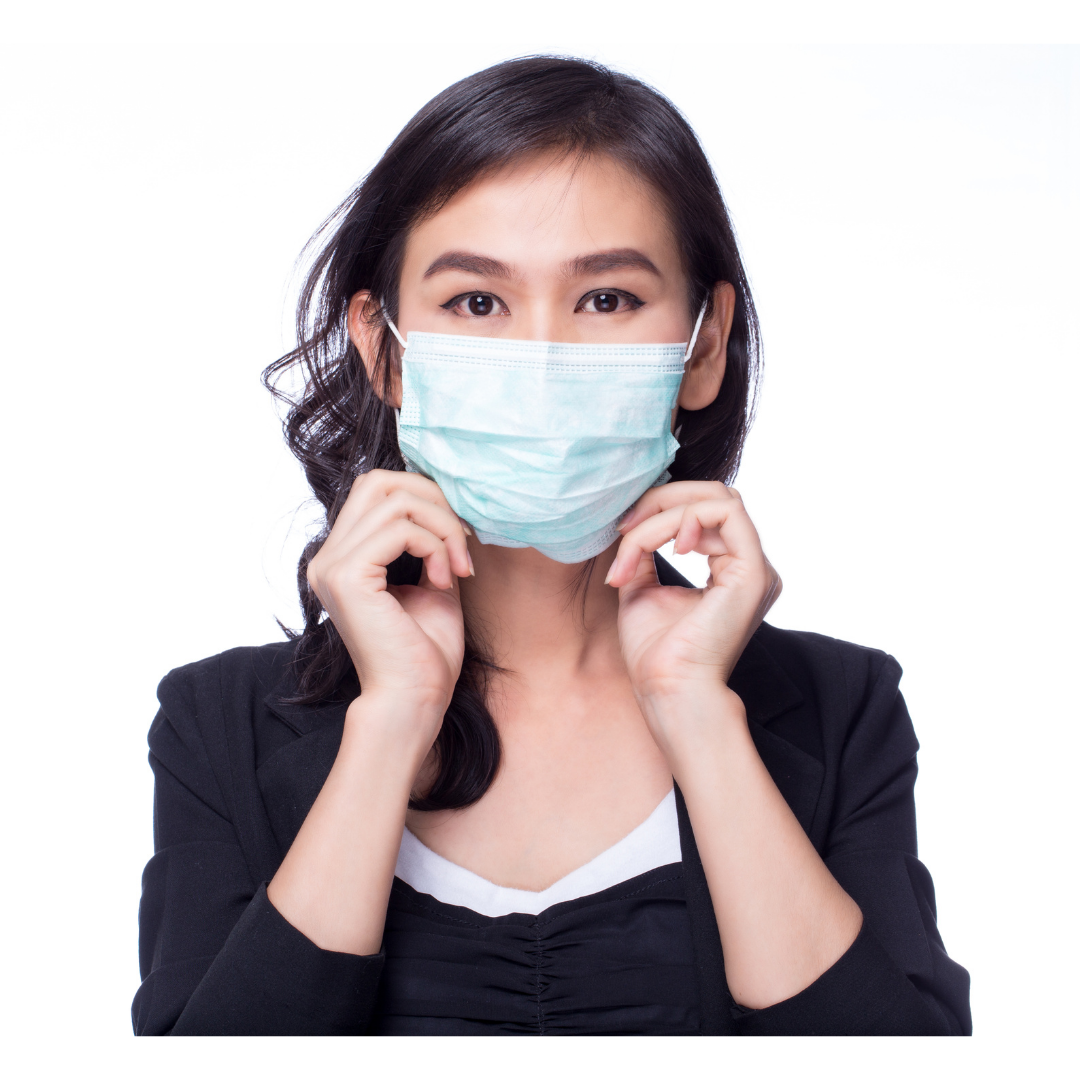What is the difference between different types of mask (for example, cloth vs medical) and their impact on transmission?

by Jenna Sherman
Health Desk
Published on November 30, 2021
What our experts say
Research focused on aerosol exposure has found that all types of masks are at least somewhat effective at protecting the wearer. But different masks have different purposes and different levels of protection for both the wearer and those around the wearer.
There are two main types of face coverings to prevent COVID-19 and other diseases:
- Face masks (such as surgical masks and cloth masks)
- Respirators (such as KN95s and N95s).
There are also two main ways that masks can protect against the spread of COVID-19:
- Protecting those around the wearer (known as source control)
- Protecting the wearer from those around them (known as personal protective equipment/PPE, or just personal protection)
Face Masks: Face masks, such as cloth masks and surgical masks, are designed to contain your respiratory droplets and particles inside the mask, including the virus that causes COVID-19. This containment protects those around you (source control). Face masks also provide the wearer with some protection from particles expelled by others (personal protection), but not as much personal protection as respirators.
Both surgical masks, (also known as disposable masks) and cloth masks are widely available. Studies have found surgical masks to be highly effective at source control, and quite effective at personal protection.
Overall, surgical masks are more protective than cloth masks. In one study published in Yale's EliScholar, the authors found that the filtration efficiency of a surgical mask among study participants was 95% for surgical masks and 37% for cloth masks. Another study published in Scientific Reports found that surgical masks reduce the outward particle emission rates by 90%.
This stronger protection is because the surgical mask material can hold an electric charge, which can attract and remove particles that might slip through small cracks of a cloth mask. Surgical masks, however, are not meant to be reworn and can lose some of their protection with wear and washing. Even after wear and washing, however, there is still evidence that they are more protective than cloth masks.
However, cloth masks still offer significantly more protection than no mask, are easy to access and make, and can be washed and reused. Cloth masks are more effective when there are multiple layers of tightly woven fabric like cotton. A mask with layers will stop more droplets from getting through your mask or escaping from it. One study found that reusable cotton cloth masks were as effective as surgical masks when made with a good design.
Respirators: Respirators are designed to protect you from particles expelled by others, including the virus that causes COVID-19 (personal protection). By protecting you from outside particles, they also do a good job at containing your own respiratory droplets and particles so that they do not expose others (source control). Respirators typically offer more protection than a surgical mask does because it filters out both large and small particles when the wearer inhales.
All respirators fit more snug to the face and are better at protecting you than regular face masks, with a requirement that they must filter out 95 percent of particles that are 0.3 microns in size or larger. N95s and KN95s are designed to filter out at least 95% of very small particles that are about 0.3 microns in size (hence the 95 in the name), N95s have also been shown to be able to filter about 99.8% of particles with a diameter of about 0.1 microns, according to a 2017 study from the Journal of Occupational and Environmental Hygiene.
Respirators typically need to meet a national or international standard. N95 is the U.S. standard, and the KN95 is the China standard.
Context and background
Misinformation has continued to circulate about masks and their effectiveness, as well as confusion about how masks compare in protectiveness. Scientific evidence is clear that masking of any kind offers more protection against the virus than not masking, and is a crucial public health measure for preventing the spread of COVID-19.
Used with Permission from Health Desk, a public health hub that explains emerging COVID-19 science.


